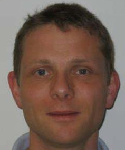
Associate Professor Raphael Linker
Faculty of Civil and Environmental Engineering, Technion – Israel Institute of Technology, Israel
Title: Model-based (sub-) optimal irrigation management
Abstract:
According to the Food and Agriculture Organization, by 2030 two-thirds of the world population could be living in regions in which water withdrawal exceeds the renewable water resources by more than 20%. In terms of global water withdrawal, agriculture is the largest consumer of freshwater, accounting for 70% of the global withdrawn. The inefficient use of fresh water resources threatens not only sustainable agricultural development but also overall economic growth and global stability. Developing technologies, tools and strategies for improving water use efficiency in irrigated crops is therefore of paramount importance.
This talk will focus on ways to improve water use efficiency in agriculture by using mathematical crop models in the decision-making process. After presenting briefly the general mathematical framework, the talk will show through several examples how such models can be efficiently incorporated in decision-making processes at different levels, ranging from seasonal planning of water allocation between several crops to local, real-time irrigation scheduling in a specific field. The two main drawbacks commonly associated with such model-based frameworks – unreliable weather forecasts and imperfect models – will be discussed, and ways to minimize the negative impact of these factors will be presented.
Biography:
Raphael Linker is Associate Professor in the Division of Environmental, Water and Agricultural Engineering in the Faculty of Civil and Environmental Engineering at the Technion-Israel Institute of Technology in Haifa, Israel. He received a degree in electro-mechanical engineering from Brussels University (Belgium) and MSc and PhD degrees from the Faculty of Agricultural Engineering at the Technion. His main research interests are related to the use of advanced approaches for sensing, control and optimization of agricultural and environmental systems. He has co-authored over 80 peer-reviewed scientific publications.